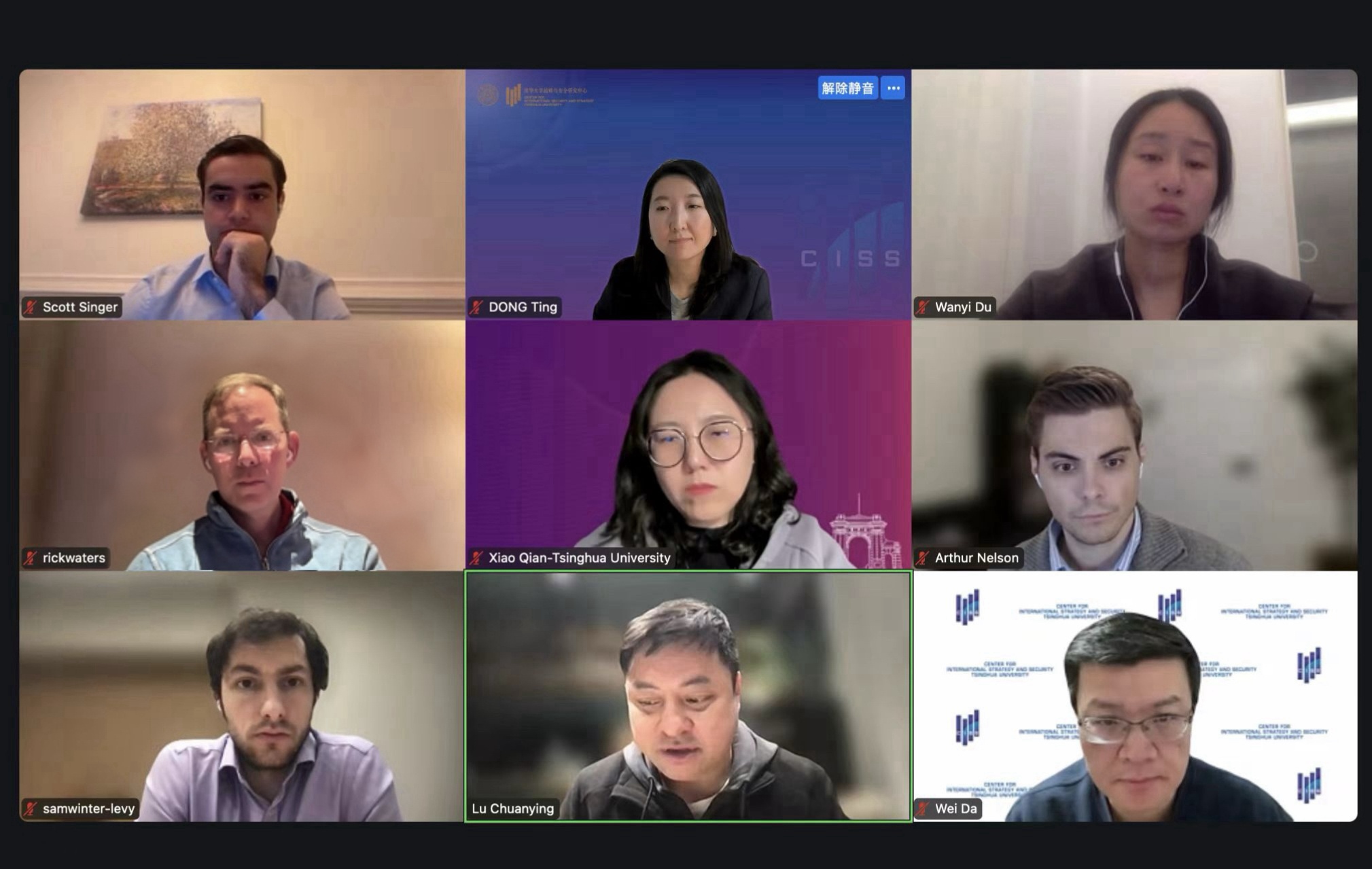On April 3, 2025, the Center for International Security and Strategy (CISS) at Tsinghua University and the Carnegie Endowment for International Peace (CEIP) co-hosted the “2025 China-U.S. Track II Dialogue.” The event was co-chaired by DA Wei, Director of CISS and Professor at the Department of International Relations at Tsinghua University, and Rick Waters, Director of the Carnegie China Center. Experts from both sides participated virtually and engaged in in-depth discussions around two themes: “Artificial Intelligence at a Crossroads: U.S.-China Cooperation and Competition” and “AI Technology Diffusion in Developing Countries.”

The session on “AI at the Crossroads: Navigating U.S.-China Cooperation and Competition” was moderated by XIAO Qian, Deputy Director of CISS. Keynote speakers included Scott Singer, Visiting Scholar with the Technology and International Affairs Program at CEIP, and DONG Ting, Fellow at CISS. Singer emphasized the importance of finding a balance between international cooperation and strategic competition in the U.S.-China relationship, sharing insights on how the U.S. assesses the capabilities and benefits of DeepSeek. DONG argued that AI is a transformative technology that should not be examined solely through a traditional geopolitical lens. She proposed three potential areas for AI cooperation between China and the United States.
The session on “Perspectives on AI Diffusion in the Developing World” was moderated by Arthur Nelson, Acting Co-Director of CEIP’s Technology and International Affairs Program. Keynote speakers were LU Chuanying, Nonresident Fellow at CISS and Professor at the School of Politics and International Relations at Tongji University, and Sam Winter-Levy, Fellow with CEIP’s Technology and International Affairs Program. Prof.LU pointed out that developing countries face a dual challenge in adopting AI technologies: while they are eager to leverage AI to address development needs, they often lack the capacity to manage its potential risks. Winter-Levy introduced three prevailing perspectives within the U.S. government on AI export policy and discussed how to weigh the benefits and risks of technology diffusion.
Participants also reached a consensus on the need to enhance coordination on AI safety standards and the sharing of national regulatory experiences. They held in-depth discussions on establishing a global monitoring mechanism to address potential misuse of AI technologies by non-state actors.
In closing remarks, DA Wei and Rick Waters noted that despite the current complex political environment, avenues for necessary bilateral cooperation remain open—such as through industry dialogues, multilateral platforms, and third-country meetings. Both sides emphasized the need for China and the United States to work together in addressing the global challenges posed by AI.
